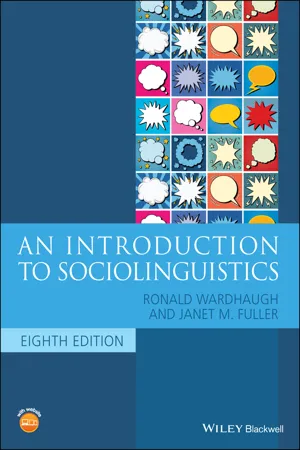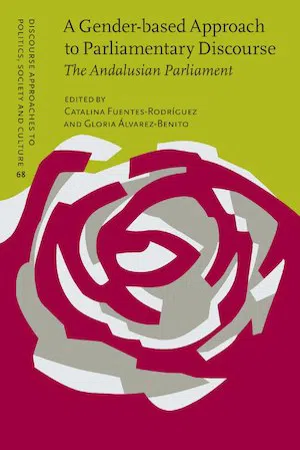Languages & Linguistics
Colloquialisms
Colloquialisms are informal words or phrases used in everyday conversation. They are often specific to a particular region or culture and may not be understood by those outside of that group. Colloquialisms can add personality and character to language, but they should be used appropriately in different settings.
Written by Perlego with AI-assistance
Related key terms
1 of 5
3 Key excerpts on "Colloquialisms"
- eBook - PDF
- Asli Özlem Tarakcioglu, Elif ERSÖZLÜ, Asli Özlem Tarakcioglu, Elif ERSÖZLÜ(Authors)
- 2021(Publication Date)
- Peter Lang Group(Publisher)
Karimi (2018) indicates that “colloquial or informal language refers to the English language in daily life use, including slangs, contractions, idioms, and non-standard language patterns lacking accurate grammatical structure” (p. 1). In a similar vein, Guth (1980) sees colloquial words as part of a “relaxed conversation”, and as a “characteristic of informal speech” (p. 357). One way of distinguishing colloquial, or casual style as Holmes (2013) characterizes it, is observing linguistic features such as pronuncia- tion and grammar (p. 270). In this study, however, colloquial expressions are mostly determined due to their semantic aspect. The words, phrases, or idi- omatic expressions that belong to everyday usage and sound familiar only to the Turkish reader were picked out for the translatorial analysis. Slang terms were also examined along with them. Slang, which is often confused with colloquialism, is alternatively defined as “offensive language” (Cuddon, 1999, p. 833) or “very informal language that is usually spoken rather than written, used especially by particular groups of people” (Cambridge Dictionary, n.d., Definition 1). Cuddon states that slang is mainly associated with money, food, drink, and, primarily, sex that is very common in everyday conver- sation (p. 834). On the other side, Guth (1980) puts forth that slang clearly shows signs of “a disregard for convention, a lack of restraint, a tendency to regard people and accepted social attitudes with condescension or con- tempt” (p. 358). Moreover, he maintains that slang is acceptable in a situation where a higher level of informality prevails. Displaying the characteristics of informal diction, slang words and phrases in this paper are examined in the same category with colloquial expressions. Archaism as a Formal Linguistic Variety Archaism stands out as a type of formal style or register (Zlatnar Moe, 2010, p. 125). - eBook - PDF
- Ronald Wardhaugh, Janet M. Fuller(Authors)
- 2021(Publication Date)
- Wiley-Blackwell(Publisher)
Languages, Communities, and Contexts Part I An Introduction to Sociolinguistics, Eighth Edition. Ronald Wardhaugh and Janet M. Fuller. © 2021 John Wiley & Sons Ltd. Published 2021 by John Wiley & Sons Ltd. Companion website: www.wiley.com/go/wardhaugh8e 2 We stated in the introductory chapter that the concept of language is considered by many sociolinguists to be an ideological construct. Further, we noted that all languages exhibit internal variation, that is, each language exists in a number of varieties and is in one sense the sum of those varieties. We use the term variety as a general term for a way of speaking; this may be something as broad as Standard English, or a variety defined in terms of loca- tion and social class (e.g., ‘working-class New York City speech’), or something defined by its function or where it is used, such as ‘legalese.’ In the following sections, we will explore these different ways of specifying language varieties and how we define the terms ‘lan- guage’ and ‘dialect’ (regional and social). We will also address how the associations between language and social meaning develop and are used in communicating in different speech contexts. What is a Language? What do we mean when we refer to a language or, even more important, the idea of mixing languages? As we will discuss further in chapters 8 and 9, recent research has coined many new terms to describe what has traditionally been called multilingualism – ‘(trans)lan- guaging,’ ‘metrolingualism,’ ‘heteroglossia.’ These terms reflect the idea that languages are ideological constructs; while we (usually) have names for different ways of speaking and can describe their features, in practice linguistic boundaries may be fluid. - Gloria Álvarez-Benito, Catalina Fuentes-Rodríguez(Authors)
- 2016(Publication Date)
- John Benjamins Publishing Company(Publisher)
From the lexical point of view, which is the focus of this study, the colloquial register has been associated with a low lexical density (Miller and Weinert, 2009:18). Instead, there is a marked presence of words with no spe-cifc meaning, colloquial vocabulary and phraseological units. However, these lexical features not only appear in prototypically colloquial interactions, but also in interactions that do not comply with the situational pa-rameters. Tis process is labelled colloquialisation: the colloquial features present in colloquialised interactions are not the consequence of the communicative situ-ation, but their presence is motivated by essentially strategic factors. Tere are sev-eral types of discourse that have been subject to a process of colloquialisation, al-lowing us to speak of a progressive colloquialisation of Spanish (Briz, 2013), which has afected a number of genres, such as the media discourse (Martínez-Costa and Herrera, 2008; Brenes, 2011; Mancera, 2008a, 2008b, 2009a, 2009b; Payrató, 2010, Vellón, 2011, for instance). In this area, colloquialisation plays a strategic role, with the aim of raising or, at least, maintaining audience share. Te object of this study, parliamentary discourse, is not a prototypical col-loquial situation: although there is a relationship of functional equality between participants and a framework of shared knowledge, there is no relationship of proximity, an interpersonal purpose or private communication 6 (Briz, 1998:27; 2010:6). However, linguistic consequences of a process of colloquialisation in par-liamentary discourse may be identifed, as we will try to show in this chapter. 3. Data Herein we study lexical colloquialisation in the parliamentary commissions of the Andalusian Parliament (eighth legislative term). Transcripts 7 of these commis-sions have been taken from the Sessions available on the Andalusian Parliament le parlé et le graphique avec l’écrit.
Index pages curate the most relevant extracts from our library of academic textbooks. They’ve been created using an in-house natural language model (NLM), each adding context and meaning to key research topics.


